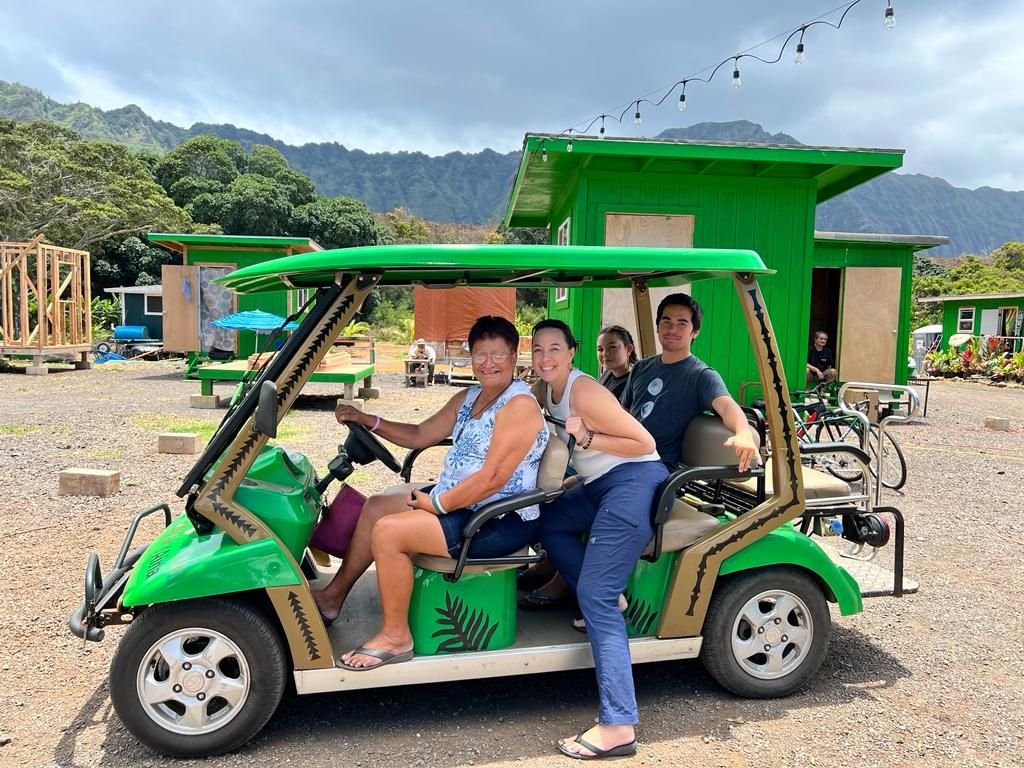Programs Purpose:
Each of these programs is designed not only to address immediate needs but also to foster long-term growth, sustainability, and empowerment in line with Kumukahi Ke Aloha's mission. By integrating holistic education, food sovereignty, housing support, sustainable development, and disaster relief, these proposals aim to nourish the soul, heart, mind, and body of the community while mitigating human suffering.
Hawaiian Soulfulness Education Program
Focus Area: Mental Resiliency Education
Overview: Grounded in the philosophy of Native Hawaiian culture and wisdom with Tao education, this program embraces holistic learning by blending experiential activities with reflective practices to cultivate inner wisdom and cultural awareness.
Experiential Workshops:
Meditation & Reflection Sessions: Guided practices that encourage mindfulness and self-discovery.
Cultural Immersion Experiences:
Hands-on sessions where participants engage with local traditions, arts, and storytelling, reinforcing values such as aloha (love) and lōkahi (unity).
Sustainable Development Integration:
Lessons that incorporate the globally recognized Sustainable Development Goals (SDGs), connecting personal growth with broader community and environmental stewardship.
Peer Learning Circles:
Small-group discussions and mentorships that allow participants to share insights and build supportive networks.
Outcomes:
Participants will enhance their emotional, spiritual, and intellectual well-being while deepening their connection to Hawaiian cultural values and sustainable practices.
Local Food Sovereignty Initiative
Focus Area: Food Sovereignty
Overview: This initiative empowers community members to regain control over their food systems by promoting local production, equitable distribution, and culturally relevant practices.
Key Components:
Community Gardens & Urban Agriculture:
Establish local gardens that use organic and traditional methods, providing fresh produce and hands-on agricultural education.
Food Systems Workshops:
Sessions on nutrition, sustainable farming techniques, and the economics of local food production.
Collaborative Networks:
Form partnerships with local farmers, cooperatives, and food justice advocates to build resilient, community-based food supply chains.
Outcomes:
By reinforcing the right to self-determined food systems, the program aims to improve food security, promote ecological sustainability, and nurture community well-being.
Houseless Community Support Program
Focus Area: Housing for Homeless and Impoverished
Overview: Using culturally sensitive approaches, this program (referred to as the "Houseless Program") addresses the unique challenges of houselessness in Hawaii by collaborating with local leaders and leveraging community resources.
Key Components:
Resource & Needs Assessment:
Identify community leaders, available land, and resources essential for developing both temporary and permanent housing solutions.
Collaborative Construction & Renovation Projects:
Work with local government advisors and community members (as exemplified by the ongoing efforts with Aunty Blanche McMillan) to create affordable, dignified living spaces.
Support Services:
Offer counseling, job training, and case management to help houseless individuals transition to stable housing while fostering community integration.
Outcomes:
Enhanced quality of life, increased self-sufficiency among houseless individuals, and the creation of a stronger, more inclusive community environment.
Sustainable Community Development Program
Focus Area: Sustainable Development
Overview: This program seeks to nurture a better tomorrow by engaging the community in sustainable practices that address climate change and environmental conservation.
Key Components:
Climate Action & Renewable Energy Workshops:
Educational sessions on sustainable energy solutions, energy conservation, and reducing carbon footprints.
Native Ecosystem Restoration:
Initiatives such as planting native trees and shrubs, protecting native forests, and restoring ocean ecosystems, engaging local volunteers in hands-on conservation work.
Sustainable Living Seminars:
Classes on waste reduction, water conservation, and sustainable consumer practices, linking everyday actions with global environmental goals.
Outcomes:
A healthier environment, empowered citizens with practical sustainability skills, and long-term community resilience against climate challenges.
Maui Relief and Rebuilding Initiative
Focus Area: Maui
Overview:
In response to the recent devastating fire on Maui, this initiative focuses on both immediate relief and long-term community rebuilding efforts to restore lives and livelihoods.
Key Components:
Emergency Relief Services:
Rapid deployment of food, shelter, medical care, and counseling services to affected families.
Temporary & Transitional Housing:
Establish safe spaces and temporary shelters while planning for sustainable, permanent housing solutions.
Community Healing & Rebuilding Projects:
Organize cultural and memorial events to foster healing; engage local leaders in rebuilding community infrastructure and public spaces.
Information & Advocacy:
Maintain regular communication with community members through updates, news integration, and collaboration with local media, ensuring transparency and community involvement throughout the recovery process.
Outcomes:
Immediate alleviation of suffering, expedited recovery of affected areas, and the strengthening of community bonds through shared resilience and cultural healing.















